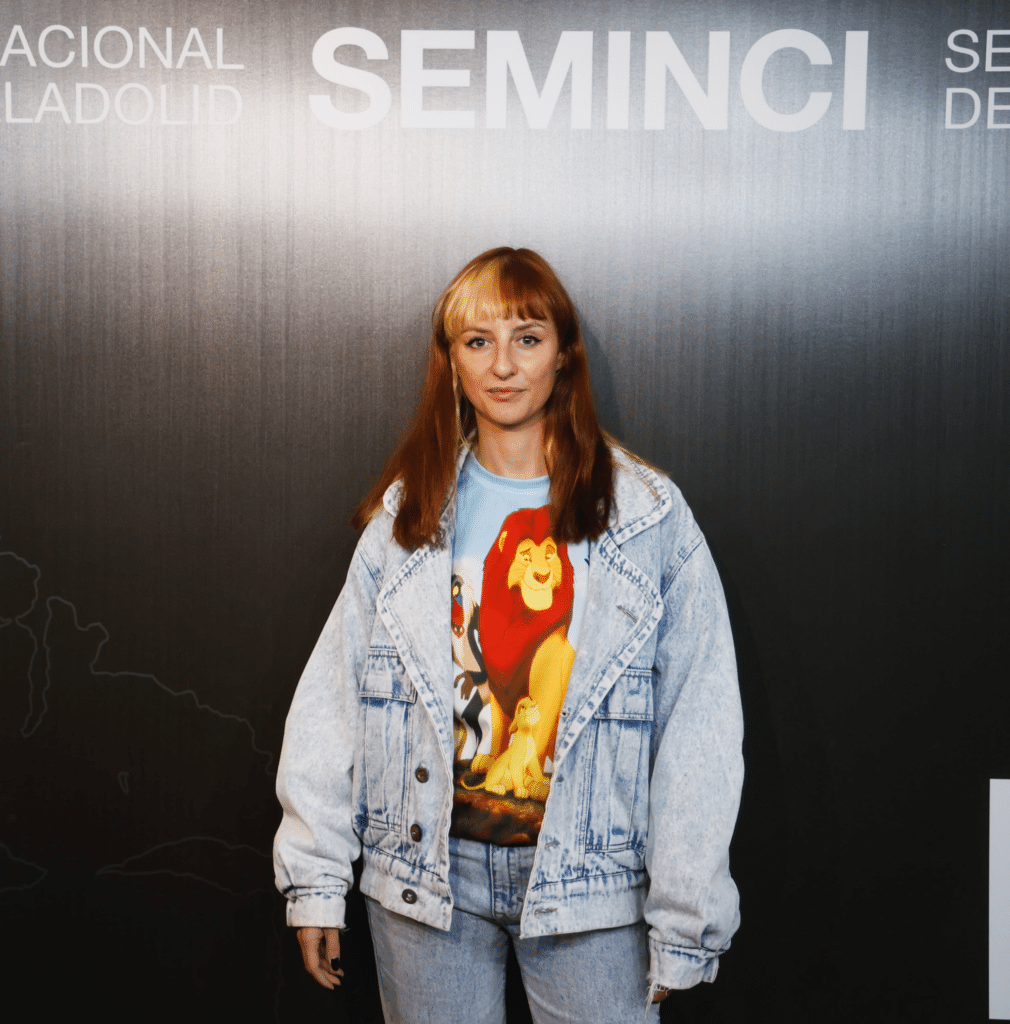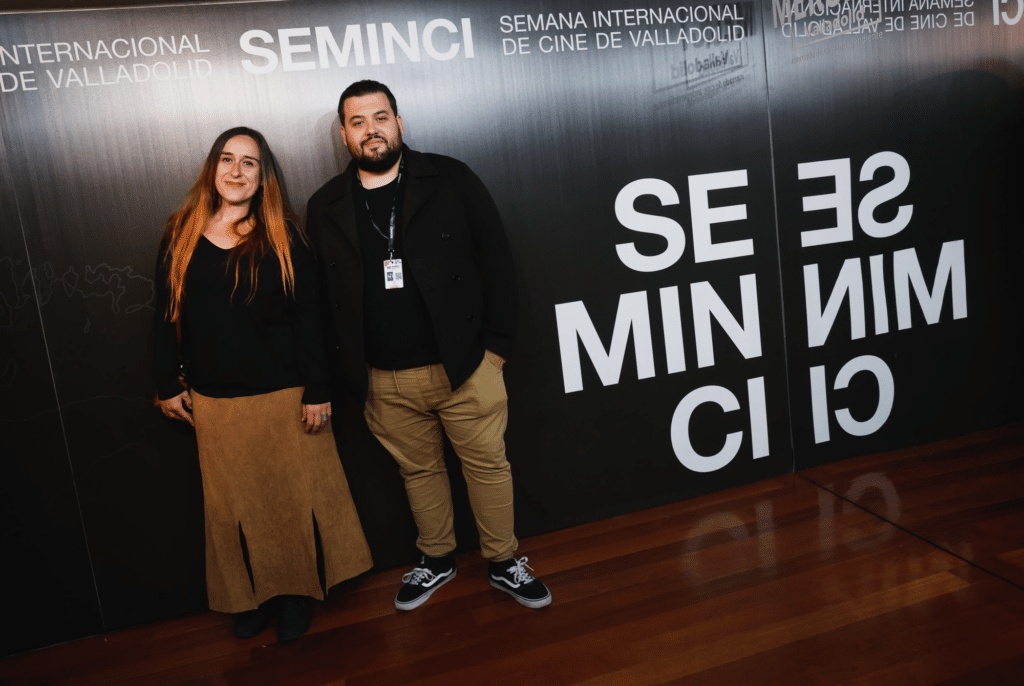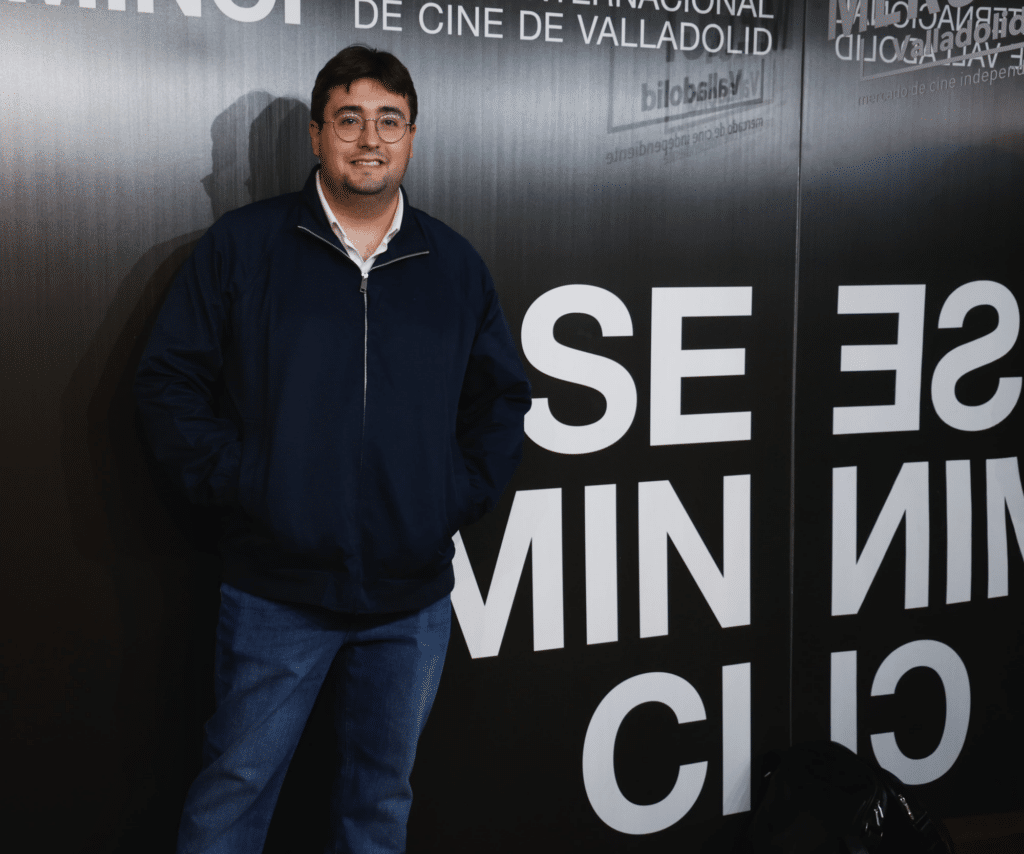
Room 5 of the Broadway Cinemas was the venue for the screening of the productions programmed in Castilla y León en Corto of the 68th edition of Seminci. Five of the seven short films screened compete officially in the category.
The first, leading the screenings, was El rey de la semana, whose producers, Néstor López and Pilar Sancho, wanted to highlight the great reception of the public, which at the beginning of the presentation left few empty seats. “Much of the short film is improvised”, they said about the short, which is about a divorced man in his thirties who seeks to find a partner and crown himself as “the king of the week” of the seduction workshop for men he attends.


The second short film, Alegre y olé, is a film starring two women from different generations who share experiences in a mental health center. Clara Santaolaya, its director, wanted to emphasize the “pride of being able to share the project in my homeland, where I have always nurtured cinema”. Santaolaya also took the opportunity to recall the importance of mental health, which “although it is on everyone’s lips, there are still many steps to be taken, especially in the processes of the victims who suffer from it”.
Rubio Cobrizo was the third screening at the Broadway, and its director, Pablo Quijano, from Palencia, wanted to express his “happiness” for screening his production at the Seminci in Valladolid, where “visibility is given to so many wonderful projects that normally do not have it”. His production is shot in Madrid and the Palencia towns of Aguilar de Campoo and Carrión de los Condes, and deals with the conflict between two women played by María Barranco and Elisa Matilla.


The next proposal was Nudo, a film shot in the streets of Valladolid that delves into the instinctive reactions of human beings. Directed by Herminio Cardiel, the director, together with producer Miguel Ángel Valdivieso, wanted to detail his interest in “two people having the same conflict”. The project would not have been possible without “the whole team behind the short films”, whom they thanked for their work.
The film afternoon continued with Velado, an “intimate story, autobiographical at certain points”, in which we see the discovery of two teenagers living in a small town in the Castilian plateau. This was told by Carlos C. Insuela and Carla Voces, directors of the film, who after thanking colleagues and teachers, detailed how the project “began as a simple thing, an end-of-degree project, and has ended up in Seminci”.


After these first five screenings, it was the turn of El cuñao, an out-of-competition work that depicts a Christmas dinner with a family member who fulfills all the clichés of what is known as “cuñao”. Similarly to the previous screening, its director Javier Canal Diez explained that his work was conceived “within the Master of Cinema of the University of Valladolid”. That is why, in addition to thanking colleagues who have collaborated, such as the interpreter Óscar Zautúa present there, he has done the same with “the people who trust in cinema, in the projects that are starting and that will be the future”.

The day concluded with the last screening, in the Seminci Factory program: Caso dativo. Accompanied by Borja Maestre, Cristina Llorente and Carlos Tapia, interpreters of the film, its director, Juan Rodríguez-Briso, explained where the title comes from. “Dative means a person who receives an action, directly or indirectly, and that’s what the short film is about”.
A young journalist investigates a case of illegal medical tests that will lead her to have to choose between her personal life and her professional career. The actors have expressed their gratitude “to all of us who make art, because it is very necessary”, and have asked “politicians to continue supporting and providing a space where they can show the talent of all those people who have to tell their stories”.



























![Logo Foro Cultural de Austria Madrid[1]](https://www.seminci.com/wp-content/uploads/2024/09/Logo-Foro-Cultural-de-Austria-Madrid1-300x76.jpg)








